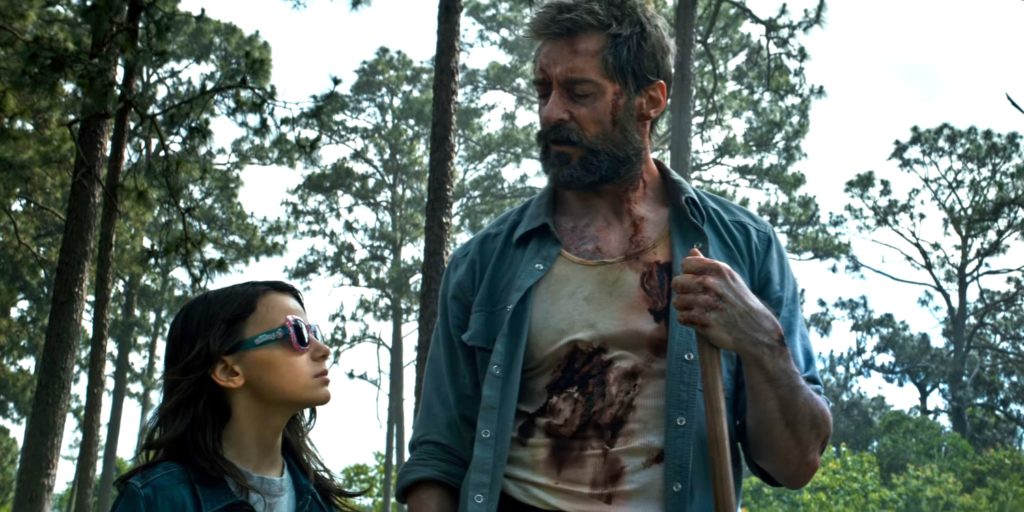“This repression of the ‘non-serious’ aspects of pleasure, of a discourse of fun, is not, of course, a total exclusion. Notions of distraction, diversion, and entertainment have appeared with regularity in the academic discourse on cinematic pleasure. Yet, within that discourse, they are almost invariably positioned as negative terms. They are often figured as decadent – betrayals of truth, morally corrupt, politically incorrect – or, at best, as escapist or trivial. Indeed, it seems that the vast majority of the academic ‘discourse on pleasure’ has been calculated to distinguish between these ‘corrupt’ pleasures and more acceptable, ‘serious’ pleasures.”-R.L. Rutsky & Justin Wyatt, Serious Pleasures: Cinematic Pleasure And The Notion Of Fun, 1990

Most of the films that American audiences see or hear about are designed to maximize public appeal, to gross highly, and to entertain. With this set of priorities, the mainstream, the most commercial of American cinema, cannot afford much in the way of serious artistic expression. If we accept Rutsky and Wyatt’s arguments, then the films that come out of the major studios enter into critical discourse as “corrupt pleasures” insofar as these films primarily represent distractions, diversions and entertainment.
James Mangold’s Logan (2017) fits within this niche easily. It’s a major blockbuster and an installment within a well proven franchise of movies that has been turning a healthy profit in cinemas for seventeen years now. However, unlike most films within a franchise, Logan dares to challenge the genre to which it was born (so to speak). J.J. Abrams’ Star Wars: The Force Awakens (2015) is a far more typical representation of how a franchise functions, evidencing how best to keep the grosses consistent: more of the same, again and again.
Logan is not just alone in the X-Men movie franchise because of its rating, Logan is also a character study, and a film whose narrative devices have been absent from the superhero genre. In fact Logan has more in common narratively with Clint Eastwood’s A Perfect World (1993), Luc Besson’s The Professional(1994), Takashi Miike’s Rainy Dog (1997), James Cameron’s Terminator 2: Judgement Day (1991), and John Cassavetes’ Gloria (1980) than it does with any of the Batman, X-Men, Avengers, Spiderman, Superman, Ironman, or Guardians Of The Galaxy movies that have come out in the last twenty years or more.
The primary reason Logan does not fit within the aesthetic blueprint of the superhero genre is because the film prioritizes its three lead characters over the spectacle of violence. Mangold’s film is interested in the frailties of his super powered characters, and populates his film with moments that allow these frailties to function as a direct counterpoint to the sequences of action-violence that the audience is expecting. The narrative of Logan is designed for this kind of investigation into character much in the same way as A Perfect World, Rainy Dog, The Professional and Gloria are. Every time the audience finds comfort in the familiar heroic antics of Wolverine (Hugh Jackman), Professor X (Patrick Stewart), and X-23/Laura (Dafne Keen) that comfort is in turn subverted. The scenes of Wolverine caring for Professor X are particularly adept at subverting the standards of superhero fare.
Logan is also unique for assuming that its target audience, comic book fans, will be in tune with the characters introduced in the narrative to a degree that Mangold can forgo the usual scenes of expository action. Besides, one does not need an in depth working knowledge of The Reavers, Dr. Rice or Albert within the context of the Wolverine comics to understand their narrative function. If one is familiar with this set of characters, that is simply just another layer of pleasure that Logan has to offer. One of the great drawbacks to the superhero genre in film is that the authors of these films assume that the films will not work if they are not “all inclusive” in terms of their narrative accessibility. The best superhero films, Tim Burton’s Batman (1989), Richard Donner’s Superman: The Movie (1978), and Bryan Singer’s X-Men: Days Of Future Past (2014) all operate on the assumption that an audience even vaguely familiar with the characters will be able to glean from the film an understanding of these characters and their respective narrative complexes in other media forms.
There has been a tremendous amount of hype surrounding Logan. If one were to read Kevin P. Sullivan’s article in the March 10th issue of Entertainment Weekly, one may very well assume that Logan was the greatest film of its kind ever made. However, Logan can never escape what it is, a “distraction, diversion, and entertainment”. And, for me at least, this isn’t a bad thing at all.
This review was first published in 2017.
